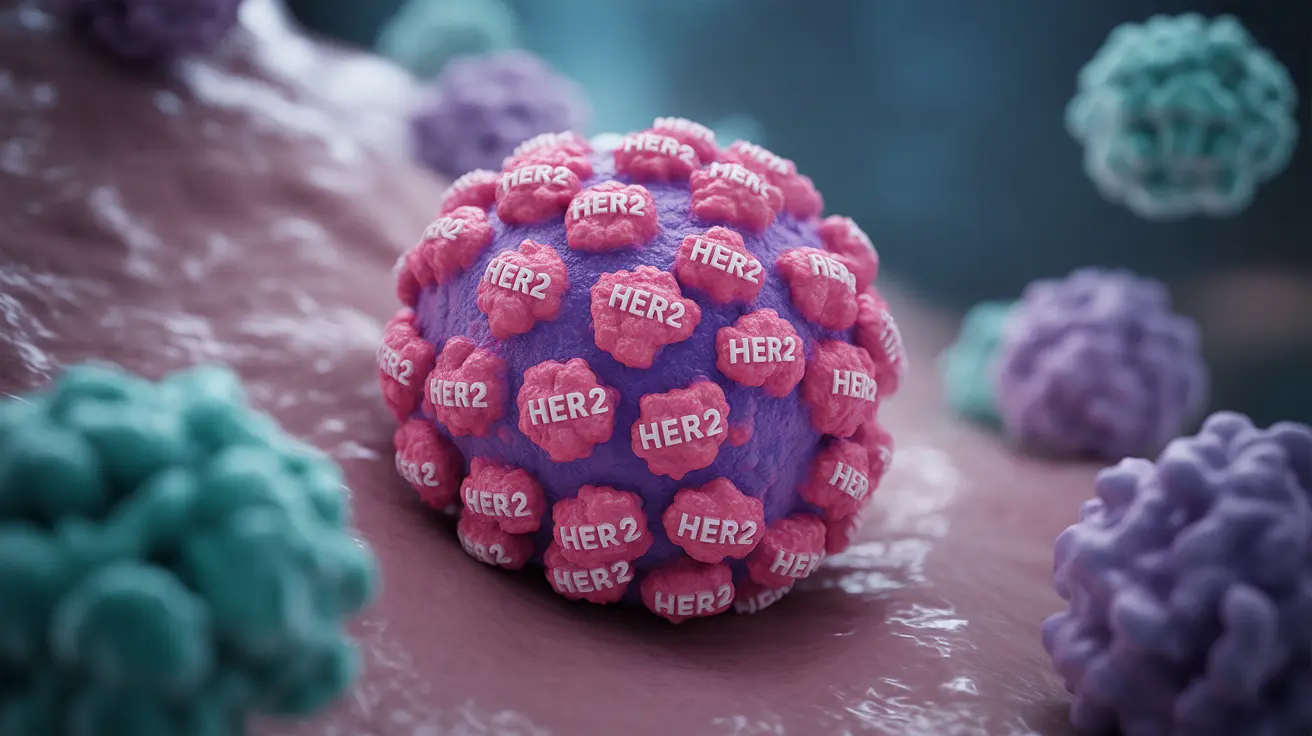When diagnosed with HER2-positive breast cancer or concerned about your risk factors, understanding the role of heredity is crucial. This type of breast cancer, characterized by an overexpression of the HER2 protein, raises important questions about genetic inheritance and family risk.
Let's explore the relationship between HER2-positive breast cancer and heredity, examining what current research tells us about genetic factors, family history, and risk assessment.
The Genetics of HER2-Positive Breast Cancer
HER2-positive breast cancer develops when breast cells produce too much human epidermal growth factor receptor 2 (HER2) protein. Unlike some other forms of breast cancer, HER2-positive status typically results from acquired genetic changes rather than inherited mutations.
These changes occur in the cancer cells themselves and are not usually passed down through families. This makes HER2-positive breast cancer different from hereditary breast cancers caused by inherited gene mutations like BRCA1 and BRCA2.
Understanding Somatic Mutations
The HER2 gene changes that lead to HER2-positive breast cancer are typically somatic mutations, meaning they develop during a person's lifetime in breast tissue cells. These mutations are not present in all cells of the body and cannot be passed on to children.
How HER2 Mutations Affect Cell Growth
- Increased cell growth and division
- Enhanced cell survival
- Greater potential for cancer development
- More aggressive tumor behavior
Hereditary Breast Cancer Risk Factors
While HER2-positive status itself isn't inherited, other genetic factors can influence breast cancer risk. Understanding these hereditary components is essential for comprehensive risk assessment:
Known Hereditary Mutations
- BRCA1 and BRCA2 mutations
- TP53 mutations (Li-Fraumeni syndrome)
- PTEN mutations (Cowden syndrome)
- CDH1 mutations
- STK11 mutations
Risk Reduction and Prevention
Although you can't control genetic factors, several lifestyle modifications may help reduce breast cancer risk:
- Maintaining a healthy weight
- Regular physical activity
- Limiting alcohol consumption
- Eating a balanced, nutritious diet
- Regular breast cancer screening
- Consulting with genetic counselors when appropriate
Frequently Asked Questions
Is HER2-positive breast cancer inherited or hereditary?
No, HER2-positive breast cancer itself is not typically inherited. The HER2 gene changes that cause this type of breast cancer are usually acquired during a person's lifetime and are not passed down through families.
Does having a family history of HER2-positive breast cancer increase my risk of developing the same type?
While having a family history of breast cancer can increase your overall breast cancer risk, the specific HER2-positive status is not inherited. Your family history may indicate other inherited genetic risk factors that should be discussed with your healthcare provider.
What genetic mutations are linked to hereditary breast cancer if not HER2?
The most common inherited mutations linked to breast cancer are in the BRCA1 and BRCA2 genes. Other important mutations include those in TP53, PTEN, CDH1, and STK11 genes, which can significantly increase breast cancer risk.
How does a somatic mutation in the HER2 gene cause breast cancer?
Somatic mutations in the HER2 gene lead to overproduction of HER2 proteins on breast cells. This overexpression causes cells to grow and divide more rapidly than normal, potentially leading to cancer development.
Can lifestyle changes reduce the risk of developing HER2-positive breast cancer?
While lifestyle changes cannot prevent HER2-positive breast cancer specifically, maintaining a healthy lifestyle can help reduce overall breast cancer risk. This includes regular exercise, maintaining a healthy weight, limiting alcohol consumption, and getting regular screenings.




